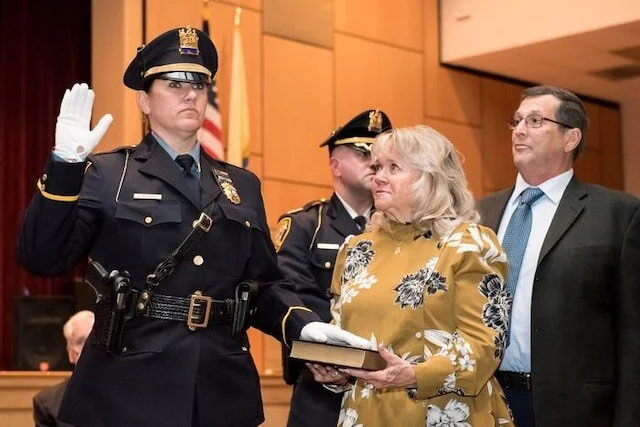Pandemic, Panic, Policing, Posting and Pandering
/Pandemic, Panic, Policing, Posting and Pandering
By: Don Huneke
(A 33-year law enforcement professional, active Sergeant and representative for the Broward County PBA)
I’ve noticed that even though we are vilified, we are the first to be called and respond to the public’scries for help! While the country is dealing with the fear of the COVID-19 virus pandemic, the law enforcement community has that and a crisis of its own, suicide. Officers are under constant attack from; the communities we serve, the media, politicians, our own agencies and yes ourselves.
Many people would be shocked to learn that law enforcement are at the highest risk for suicide of any profession. In 2019 13 out of every 100,000 people die by suicide, 17 out of 100,000 law enforcement officers died by suicide.
President Trump is even addressing the issue by supporting legislation to curb law enforcement suicide. Trump signed the Law Enforcement Mental Health and Wellness Act. The law will make grants available to initiate peer mentoring pilot programs. The bill will also help develop resources for mental health providers on the specific challenges that LEOs face. It will also take a look into the effectiveness of crisis hotlines and annual mental health checks
Many people believe that social media could be the main culprit to the rising suicide rates amongst police officers. Some factors are; constant bombardment of negative press, line of duty deaths, frivolous lawsuits, biased video footage, peer micromanagement and slander, increased number of law enforcement suicides.
The; media, politicians, public, trolls and yes, our very own have created the perfect storm of stress that have pushed many officers over the edge. These people feel like they are at the point of no return!
The law enforcement community screams that the main stream media has knee jerk reactions to incidents.They are consistently reporting; inaccurate, improper, often false information to sell stories. These are known to be big, yet fake headlines to get people to read their stories. So why are we, the law enforcement community members jumping on the vicious social media bandwagon?
After doing a great deal of research, I have concluded that some of the contributing factors to police officer’s suicides can be prevented. Incident after incident, nationwide we are putting critical information (much of it inaccurate) on the web (social media).
Shockingly, families and friends have been alerted to officer involved shootings, injuries and even deaths long before the agencies have had a chance to notify the next of kin. While incidents are underway, we even critique the responses and actions of the officers involved even before the dust settles. All just so someone can be first to report. I’ve often heard the phrase, “People create their own storms.” Are we in law enforcement not creating our own stress with these posts? If so, are we not partially responsible for our own mental health and the associated problems?
Let’s look at COVID-19 alone as a topic for law enforcement creating its own storm. Officers constantly posting about; needing guns, purchasing ammunition, stock piling food and prepping. How do we not see that we are creating more panic for ourselves and the public, the very same people who rely on us to be clam? We are trained not tofeed into the hysteria and panic. Yet we have become part of the problem which unfortunately causes loss of faith in the community.
The victims to this type of behavior (officers posting recklessly on social media & the web) are our own children, families, coworkers’, friends and the public. They see and feel the storm of those paranoid doomsday posts and even if they are intended as jokes,they many times fuel stress and panic.
While researching for this article, I’ve read many; law enforcement sites, hashtags, so-called vetted law enforcement pages and personal pages of those I saw posting frequently. I found posts that would shock the sensible to think; the world was ending, nothing was safe, the officer writing the post was in grave danger (while working), that it was the end of days and that officers families were scared. Wait, families scared? Are they serious? The law enforcement poster isperpetuating the fear themselves? Post after post about the lethality of the virus, picture after picture of them in gas masks, Tyvek, rifles at the ready, extra magazines, rounds of ammunition, stock piles of MRE’s, Even posts about overtime, cancelling days off and subjecting officers to torturous schedules that will surely garner attention and sympathy. I kept asking myself, what is the goal of the person posting these to social media? Is it attention? Is it shock? Is it to spread fear? Or is it just a social media frenzy? Do we care or even think about what effects we have on; each other, our families and the public?
We add hashtags to get more exposure, so the post has a greater audience. I’m left to believe that this mustbe for attention. I know what you’re wondering, what are the consequences? While reading posts from the anti-law enforcement crowd, they were calling for the officers to be disciplined. At the same time, the anti-gun crowd was screaming about using red flag laws to disarm the officer posting because they deem the poster to be unstable. Is an ambiguous “take your M4 to the dance” or “target practice time” post unstable? Remember is you will post Rodney King the LAPD came under fire for MDT messages where they “kicked” a subject. Well “kicked” in that context meant to “release” or “kick a person lose” without charges. Communication is as much about what is said as what is heard. So who decides what the post means?
Is the post or temporary attention worth the headache or negative attention? The possibility of work-related discipline, the fight for your gun rightsagainst Red Flag laws and anti-gun politicians. What about causing further pain or stress to one of our own who may already be at their breaking point?
I wrote this article to bring awareness to our own part in the law enforcement suicide rates increase.There is no other option for us, when we know better we must do better! We must after action our mistakes, learn from them and correct the problem. If we decrease our negative social media foot print and stop trying to “humanize the badge” in an uncoordinated effort that many times paints us in a negative light, we can minimize some of the stigma that pushed our own to suicide. If we stop trying to be social media influencers for the attention and chronic alarmists then we can hopefully save some of our own. If we concentrate on real issues, not grand stand and promote healthy dialog we can help decrease the negativity some in the law enforcement community feel about the profession and community.






















































